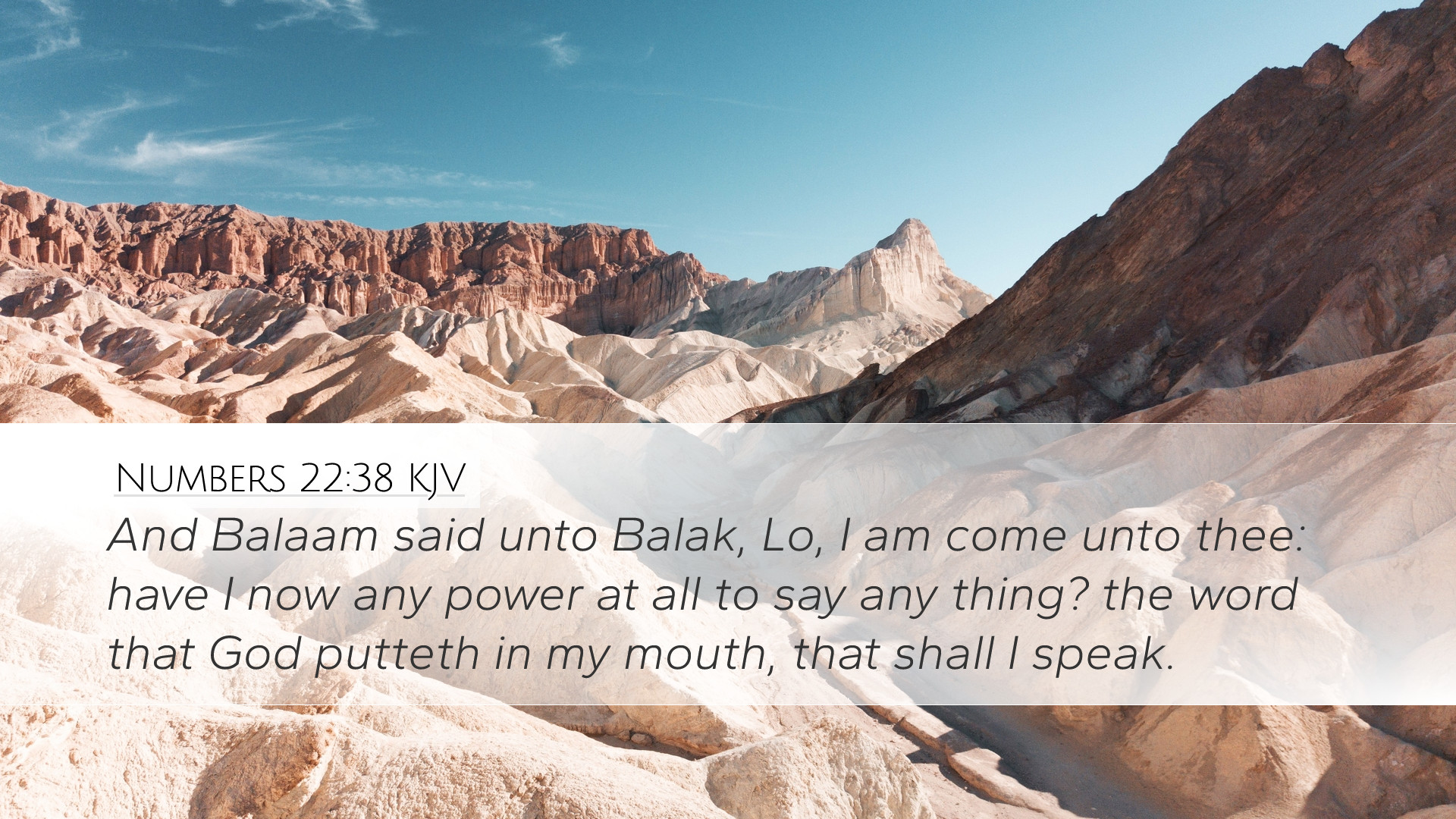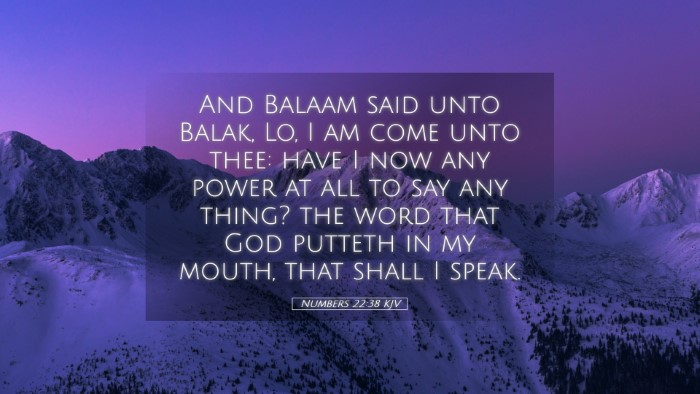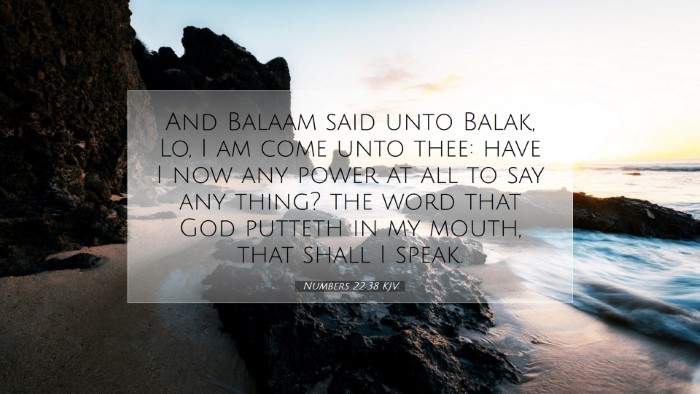Commentary on Numbers 22:38
Numbers 22:38 presents an intriguing moment in the narrative of Balaam, a prophet whose story serves as a profound lesson in the themes of obedience, divine sovereignty, and the nature of prophecy. This verse states:
“And Balaam said to Balak, ‘Behold, I am come unto thee: have I now any power at all to say anything? the word that God putteth in my mouth, that shall I speak.’”
Contextual Background
To appreciate the weight of Balaam's proclamation, it is essential to understand the broader context surrounding Numbers 22. The Israelites, having left Egypt and traversed through the wilderness, pose a perceived threat to the Moabite King Balak. In his ultimate desire to curse Israel, Balak seeks the services of Balaam, renowned for his supposed ability to bless or curse with prophetic words. This setting sets the stage for a confrontation not just between nations, but ultimately, between human authority and divine will.
The Uniqueness of Balaam’s Position
In this profound verse, Balaam acknowledges a critical aspect of prophetic ministry:
he can only speak what God commands. This declaration reflects a hierarchy of authority where divine revelation supersedes human desire. The insights from Matthew Henry note that Balaam, despite his dubious character and motives, recognizes that all power vested in him to bless or curse is contingent upon God's will.
Balaam's Acknowledgment of God’s Authority
- Divine Sovereignty: Balaam’s statement implies a theological truth: God remains the ultimate authority and is in control of prophetic utterances.
- Human Limitation: Balaam, despite being a reputed practitioner of divination, must conform to the dictates of God. This acts as a reminder of the limitations inherent in our own endeavors when pitted against divine supremacy.
The Philosophical Implications
As explored by Albert Barnes, we see in Balaam’s reply a reflection of a broader philosophical dichotomy: the clash between divine predestination and human free will. Here, Balaam exhibits a moment of surrender, recognizing that even the prophet’s role is shaped by God’s purpose.
Lessons for Theologians and Bible Scholars
- The Role of the Prophet: Balaam's response underscores that a true prophet must submit to God’s word, reinforcing the integrity of prophetic ministry.
- God's Communication: The manner in which God chooses to communicate through varied means (like dreams, visions, or even a donkey) is highlighted, exemplifying God's sovereignty over all creation.
Practical Applications for Pastoral Ministry
For pastors, Balaam’s struggle illustrates the potential risks of pursuing material gain over fidelity to God’s word. Reflecting upon Balaam’s ambiguity, Adam Clarke emphasizes:
the necessity for ministers to uphold the purity of the gospel message above all earthly incentives.
- Integrity in Ministry: Balaam serves as a cautionary tale—ministers must ensure that their motivations align with divine intent, eschewing the temptations of prosperity that seek to distract.
- Focus on Divine Guidance: Ensure congregations understand the importance of seeking God’s guidance in all decisions while relying on the Holy Spirit for wisdom in interpretation.
Conclusion
In conclusion, Numbers 22:38 not only serves as a pivotal moment within the narrative involving Balaam and Balak but also offers profound insights regarding the nature of God’s revelation, the responsibilities of those called to speak on behalf of God, and the importance of aligning personal motives with divine purpose.
As pastors, students, and theologians reflect upon this verse, may it inspire a deeper commitment to honoring the call to speak what God puts in one’s mouth, understanding the weight and responsibility of being vessels of divine truth.


